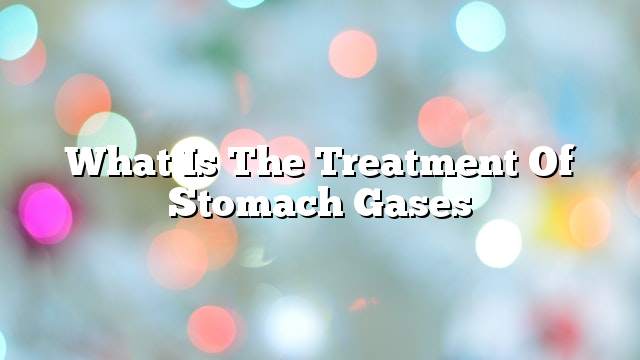an introduction
The presence of gases in the stomach may cause great embarrassment to the person may also be disturbed, where the patient is looking for any solution to get rid of this problem, but the normal situation in which the body and the body where the gases from the mouth or anus is equivalent to 12 times a day at least, The body produces gastric gases as a by-product of natural digestion. Sometimes, however, these gases are more than normal and are accompanied by a number of symptoms that need treatment. These include stomach gases: carbon dioxide, oxygen, hydrogen and nitrogen. Problem in digestion, But identifying the symptoms associated with stomach gases and their causes greatly helps to find the appropriate treatment that saves the patient from this problem.
Gases in the stomach may sometimes occur as a result of food and food eaten by the person, the food itself causes the appearance of gases or the way in which eating a person may allow swallowing the air that leads to the emergence of these gases, and usually get out of these gases by the body, for example.
Causes of increased gas in the stomach
- Lactose intolerance This congenital disorder causes allergies to some dairy products.
- Swallowing air in particular from eating, drinking or talking
- Difficulty in digestion
- Inflammation of the pancreas
- food poisoning
- Irritable colon syndrome or irritable bowel syndrome
How you can reduce gases
- Avoid eating foods that you feel are causing you to bulge like beans, broccoli, cabbage, cauliflower, chewing gum, fruits such as apples, peaches, pears, hard candy, lettuce, milk and dairy products, onions, whole grains or spices.
- Avoid drinks that may cause you to appear gases such as coffee or any stimulants or soft drinks.
- When you feel gas leaking on your back and lift your legs up to the chest area, this position may help you get rid of gas
- Stay away from smoking or even stress
- Eat slowly rather quickly
If the problem continues there are many pharmacological treatments that may be prescribed by your doctor and that will help you to get rid of this problem.
When the doctor retreated
If these gases are associated with any of the following symptoms:
- diarrhea
- Constant pain in the abdomen
- Blood in the stool
- Change in stool color
- Weight loss
- pain in chest
- Heartburn
Note
Always keep exercise at least 3 times a week where sports help overcome and eliminate this problem. Do not forget to eat healthy foods rich in fiber and attention away from foods that increase gas in your stomach
